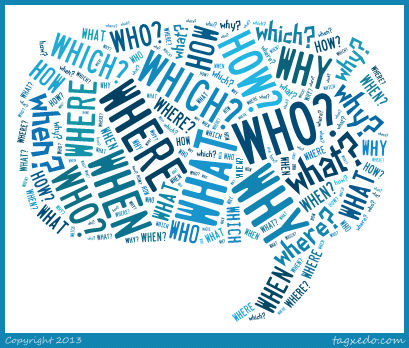I have written about questions before (related to curiosity and tough concepts). Today I am reflecting on how we as teachers, coaches, and leaders (my favorite roles, along with learners!) use questioning as a strategy to facilitate learning.
I recently had the opportunity to collaborate with some stellar teachers, facilitated by a consultant who was helping us navigate through an inquiry process with our students. From the beginning of the experience, the teachers were asking the consultant and I (when I worked in their classrooms) , “Can you give me a list of questions to ask during this small group support time?” “What should I ask students to push them forward?” The consultant and I shook our head, explaining that there is no canned list of questions to provide; our work with students was driven by student responses. The teachers were still looking for a list of questions as we walked into a classroom to observe the consultant teach a demonstration lesson.
I scripted the entire demo lesson so I could capture the questions the consultant asked. She asked over 70 questions during her 25 minute lesson. None of the questions were surprising- she asked basic questions, follow-up questions, questions to encourage participation, and questions to prompt students to justify their thinking,
Immediately following the demo, each of the teachers (and coaches and leaders like myself) in the room, had the opportunity to work with a small group of students in the room. We were supposed to help our group of students synthesize their research thus far.
During our small group time, the consultant was able to walk around to observe us. She scripted the language she heard us use with the students. When we came back together to debrief our work, the consultant had to share the hard facts with the group- during our 25-30 minutes with small groups, the teachers spent the majority of the time talking, instead of the students. And the talking the teachers did was telling- the adults told students what to do instead of asking questions.
– Take out your notes.
– Let’s read our notes together.
– The main idea is about water conservation, right? (We did this a lot- I’m sure we felt like we were asking a question even though we really weren’t!)
When the consultant shared this data with us, the teachers were shocked. We spent a long time reflecting on what we said and did versus what she said and did during her demo lesson. We then spent time discussing the value of teachers (or coaches or leaders) using the skill of questioning to facilitate learning.
- How often do you, as a leader, ask questions?
- How much wait time do you provide to ensure that you do not answer your own questions?
- What type of questions do you find most powerful for reflection?
- How do you stop yourself from taking over a conversation by talking too much?
- How can the skill of questioning enhance your leadership?


Great posting! We have been working on question at my site too. We have found it helpful to script out all the levels of questions that might come up during the lesson so that the thinking is in our heads before we teach this lesson. The planning piece can’t be underestimated.
Pingback: The Art of Questioning | Reflections on Leadership and Learning
Pingback: My Beautiful Question | Reflections on Leadership and Learning
Pingback: Questioning | Reflections on Leadership and Learning
Pingback: Breaking Out of the Boxes | Reflections on Leadership and Learning